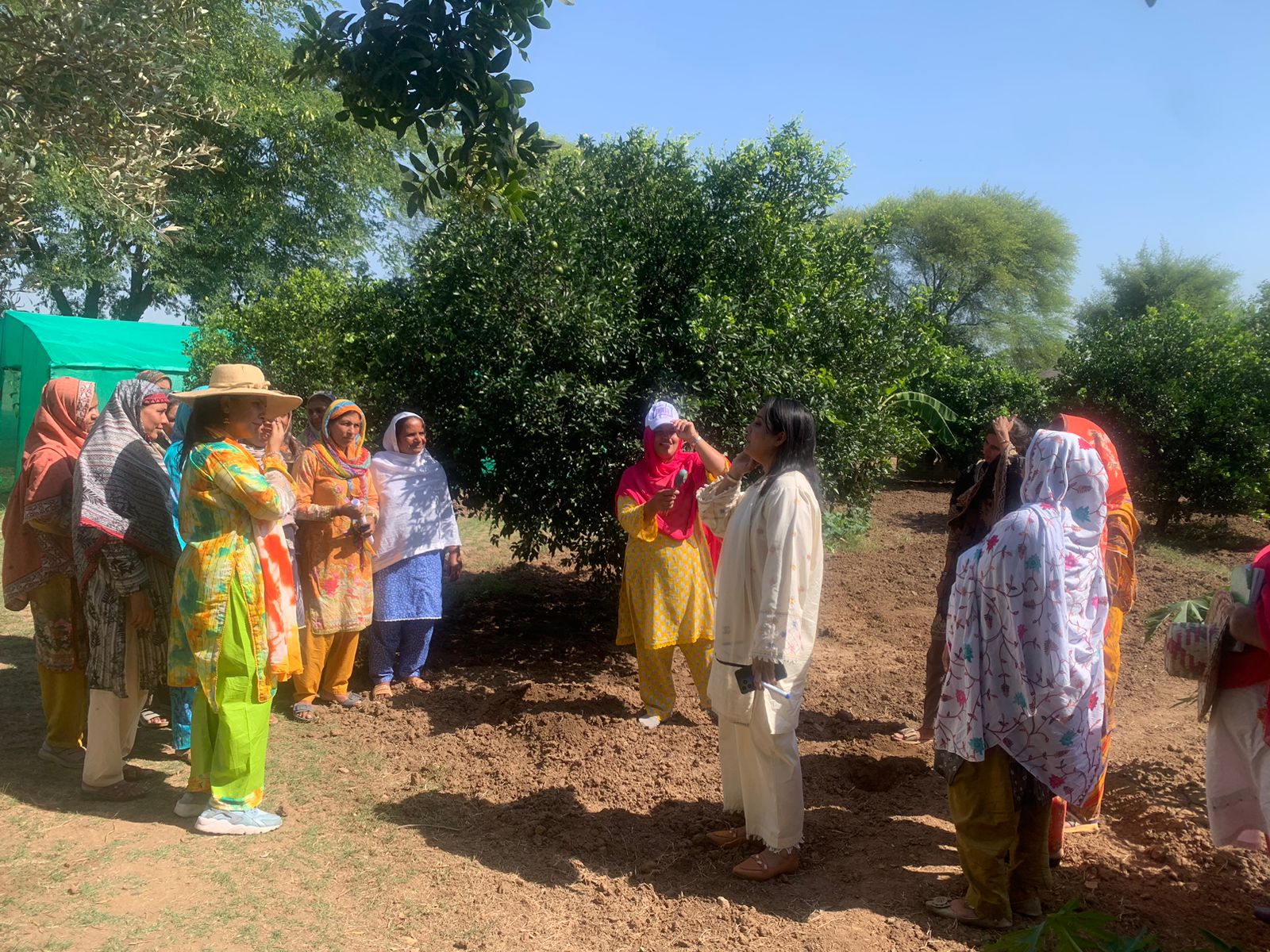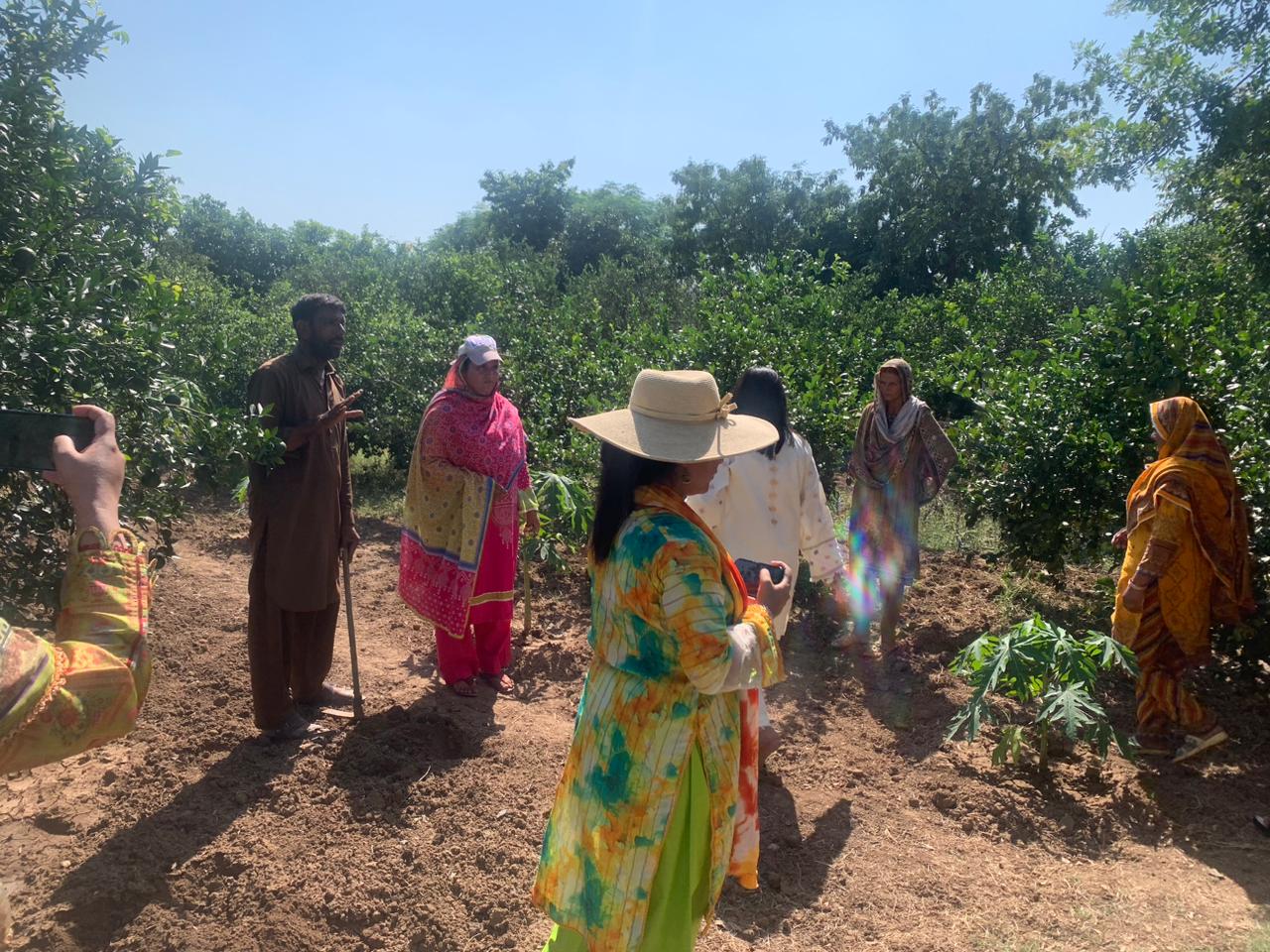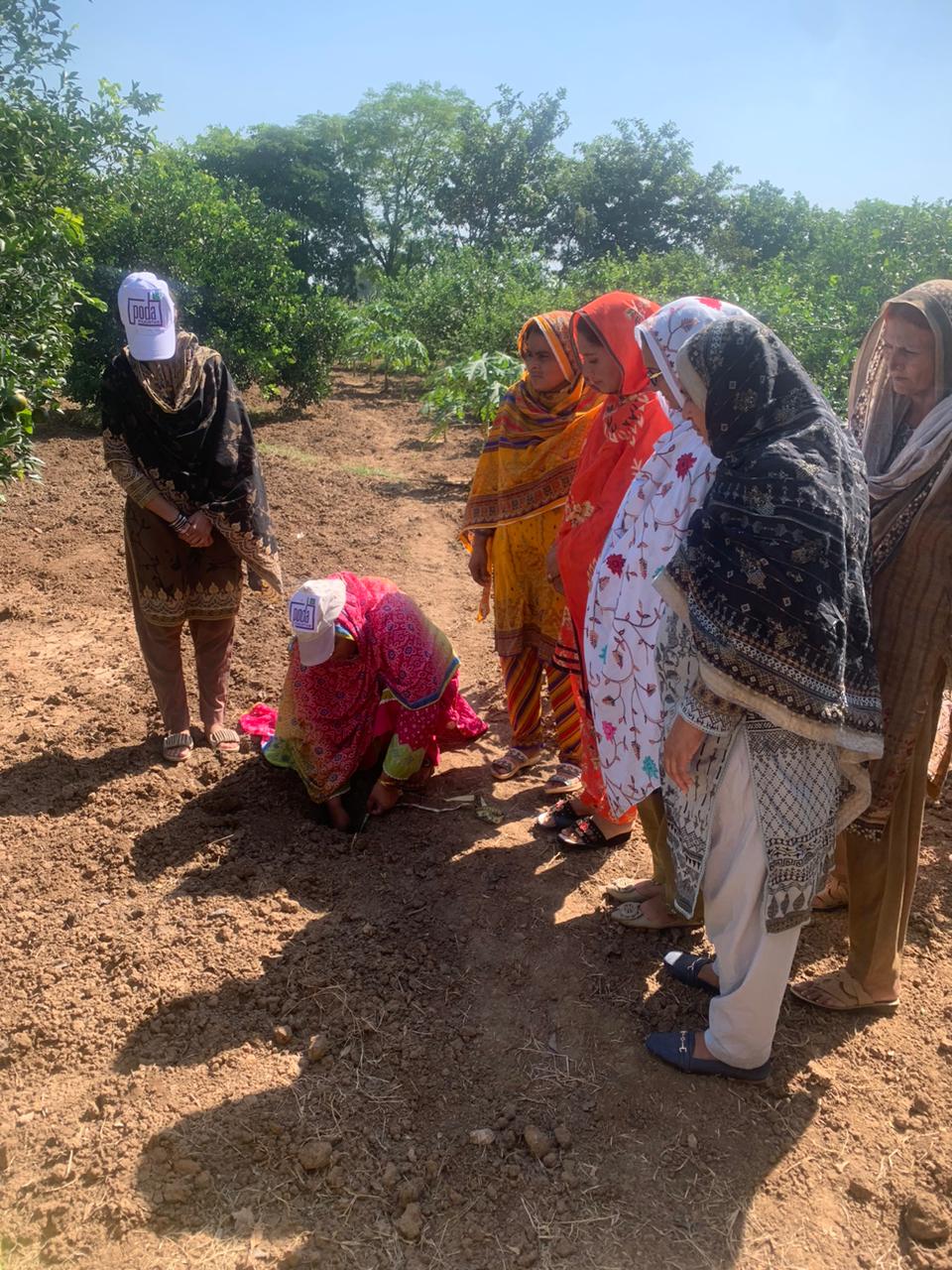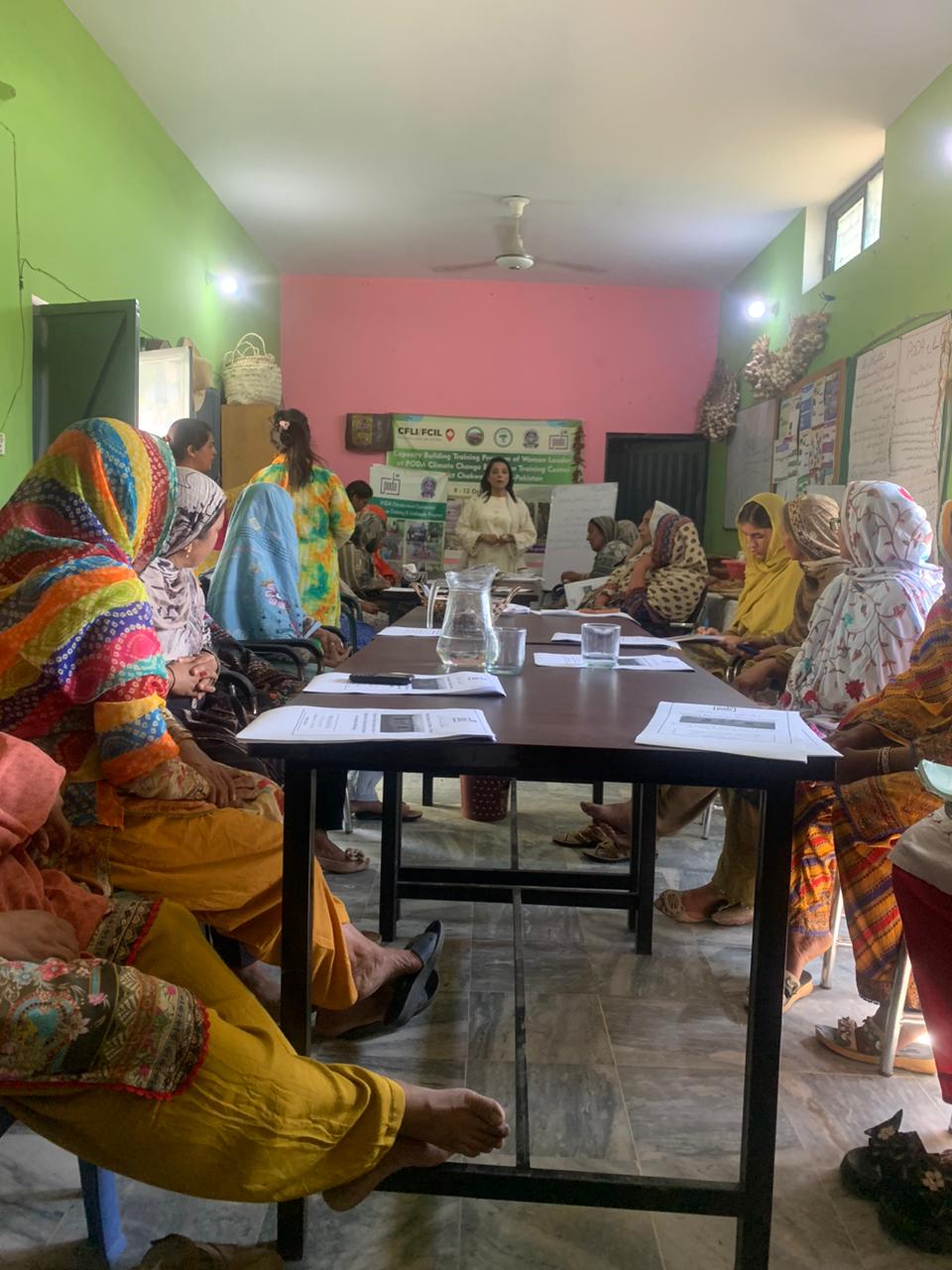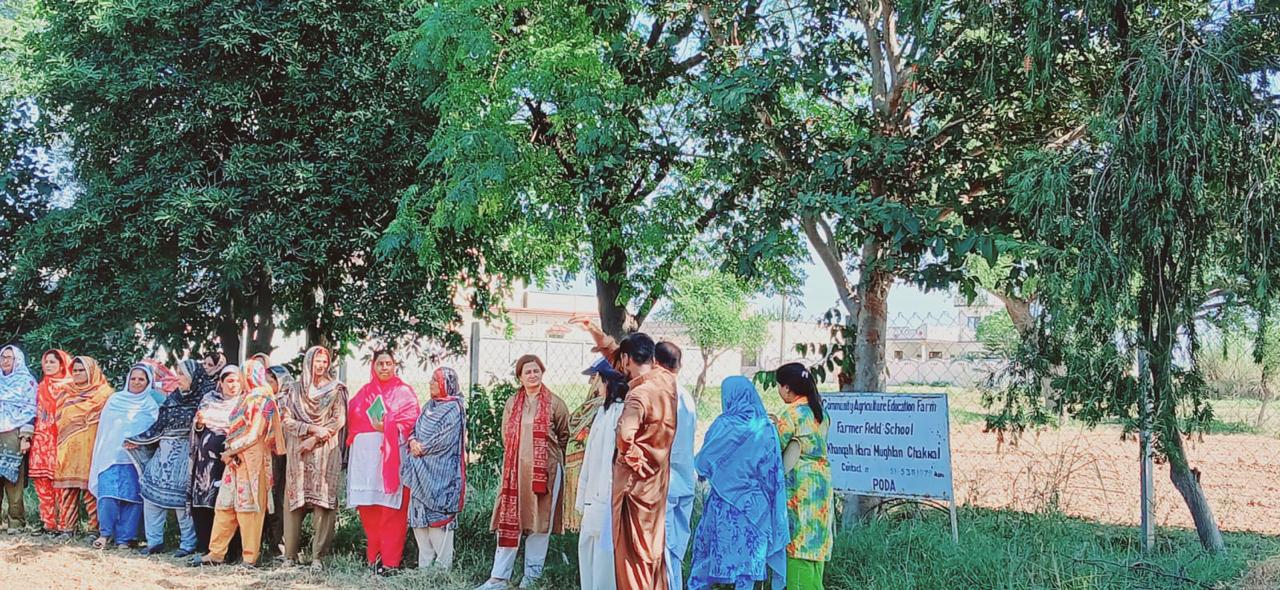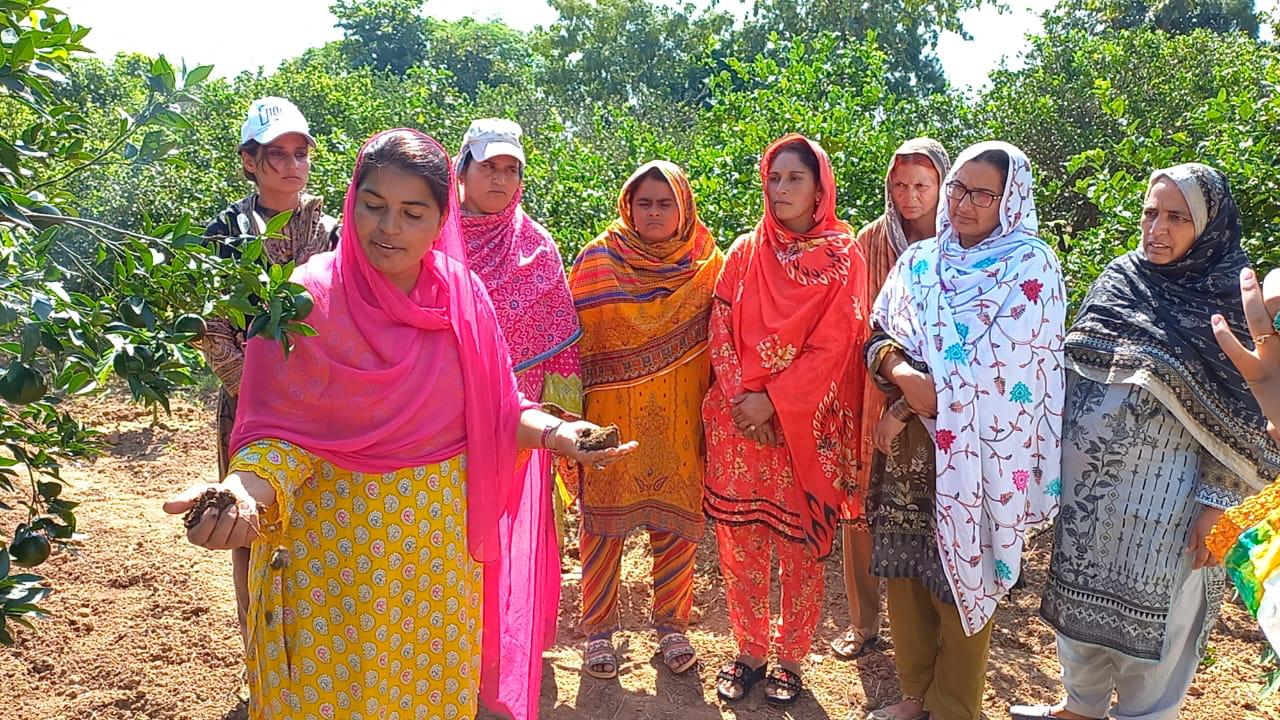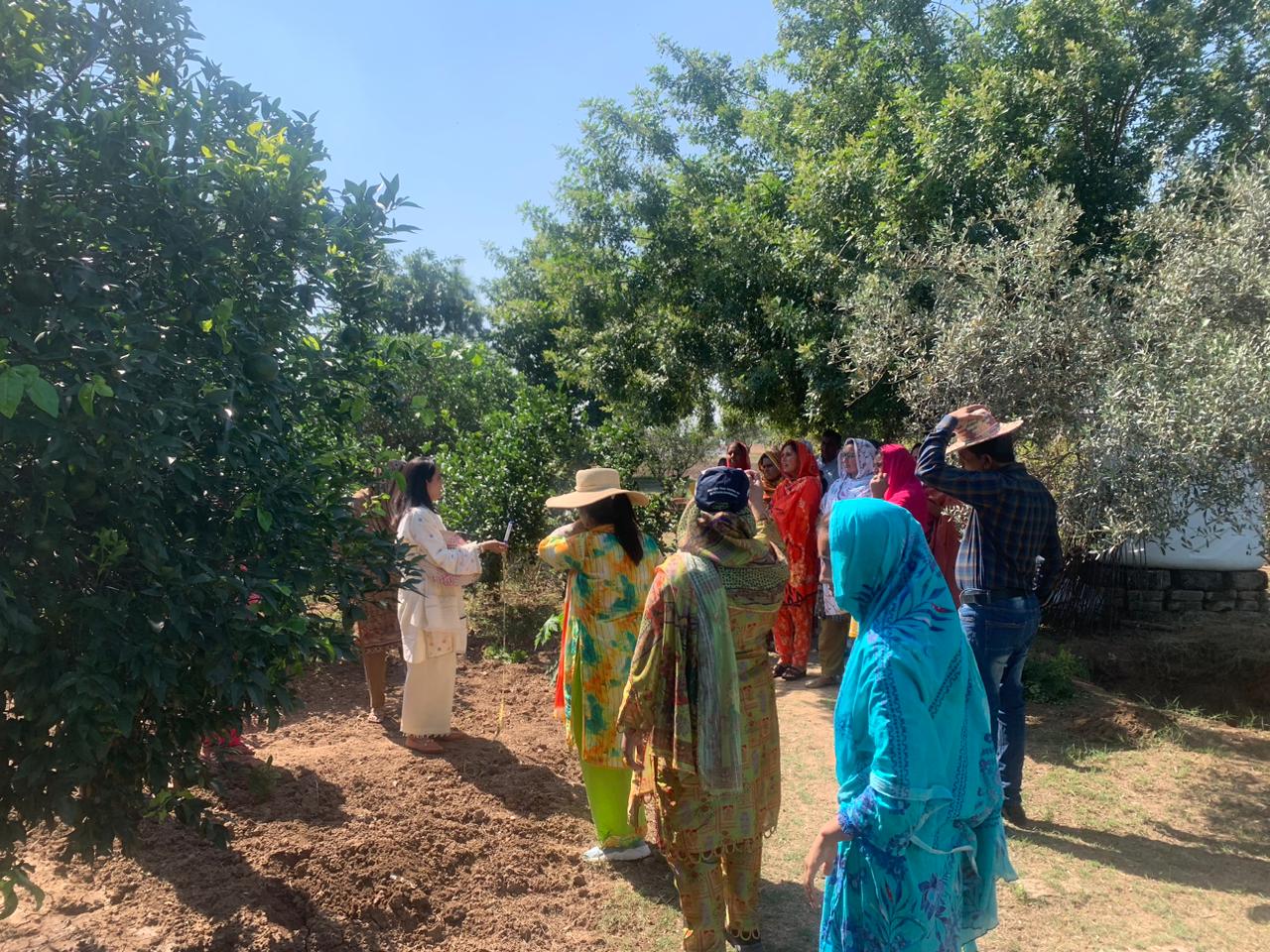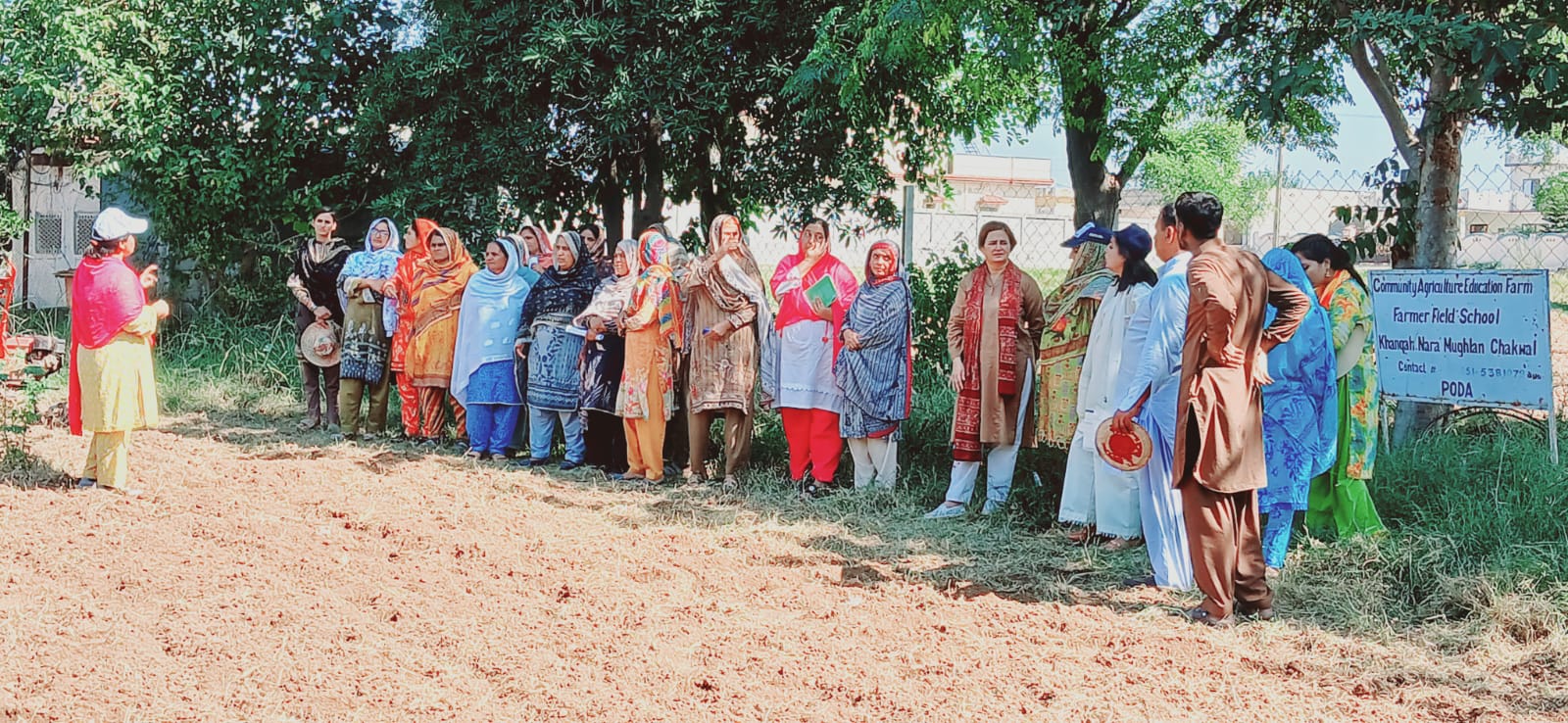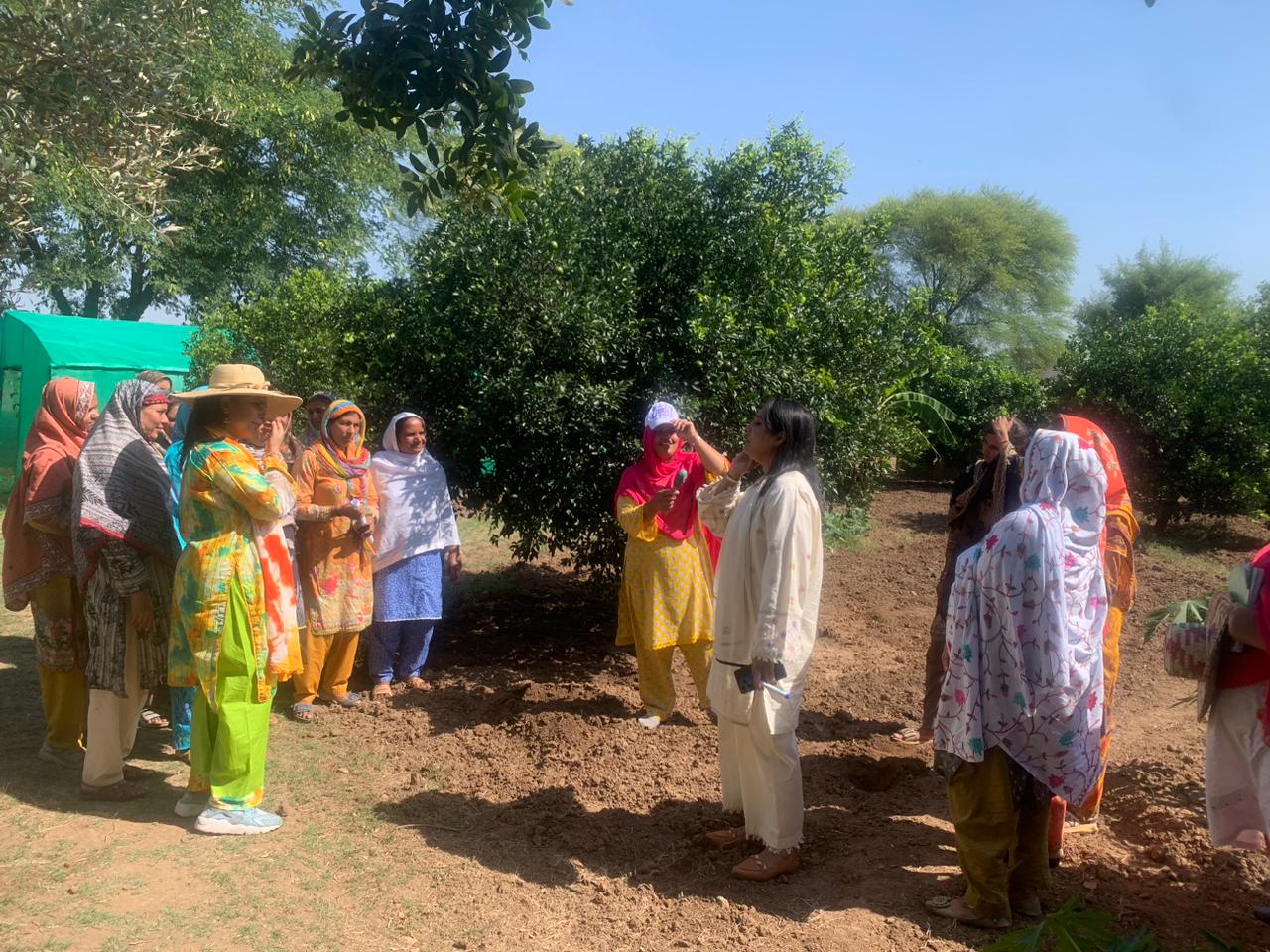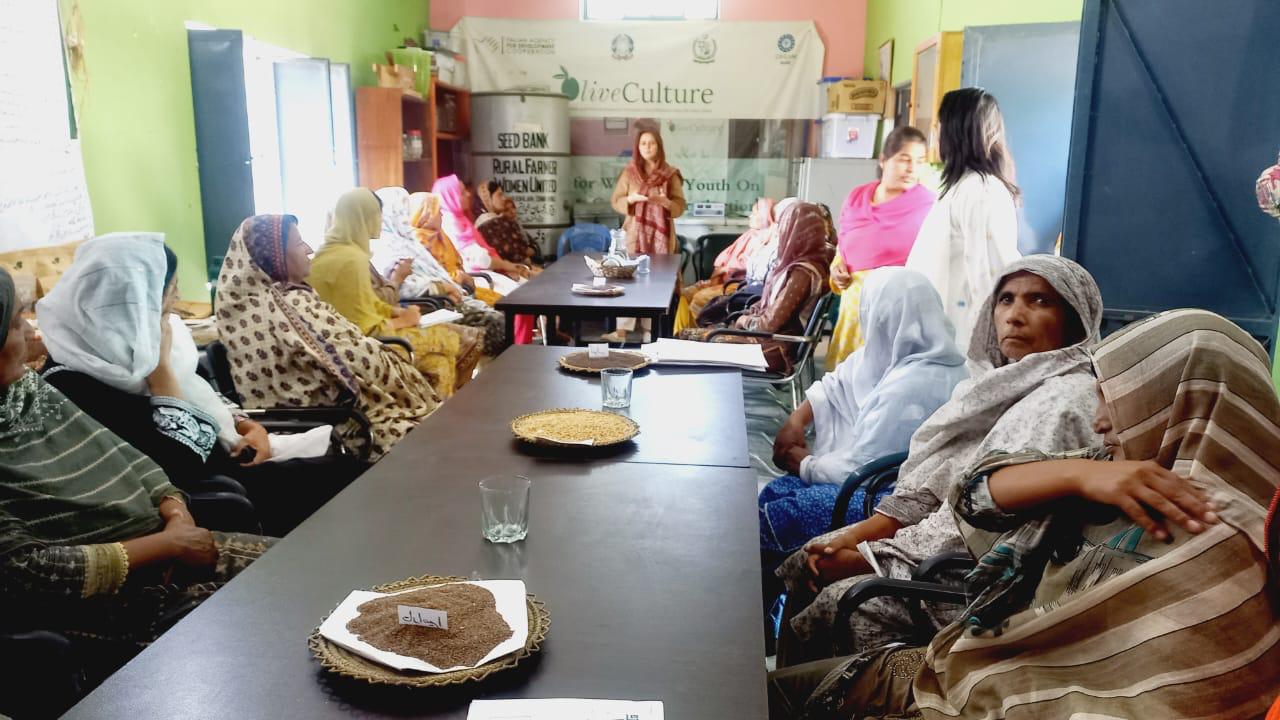
On October 12, PODA successfully conducted a training session for 20 women farmers in Chakwal, titled “Enhancing Productivity and Food Security through Wheat and Canola Intercropping.” The training was sponsored by SPARC to promote sustainable agriculture among women farmers in Pakistan.
The training took place at PODA’s Sustainable Agriculture and Climate-Smart Education Center. Participants learned about:
1. Reasons for low productivity in rainfed areas
2. Impact of climate change on agriculture and mitigation strategies
3. Intercropping benefits, specifically wheat and canola, to maximize yields from limited resources
Master Trainer Farzana shared comprehensive production technology for wheat and canola intercropping, covering:
1. Seed selection
2. Land preparation
3. Sowing with drills
4. Weed management
5. Fertilizer application
6. Harvesting using advanced techniques
Dr. Fozia guided participants on:
1. Proper soil testing methods
2. Soil sampling
3. Crop selection according to soil type
4. Seed priming techniques for improved germination in low-moisture soils
Farm Assistants Zainab and Bushra demonstrated composting using kitchen waste and its application for higher yields at minimal cost.
Hands-on training included:
1. Using drills and small tractors for sowing canola and wheat seeds
Participants showed keen interest and willingness to adopt this intercropping technique in their fields during the upcoming Rabi season.
A group discussion highlighted concerns:
1. Unavailability of high-quality wheat seeds
2. Seed spoilage due to heavy rains during harvesting
Women farmers requested PODA and SPARC to assist in arranging high-quality wheat and canola seeds at affordable prices.
The training concluded with encouragement to adopt new techniques and non-traditional crops to ensure food security amidst population growth and climate change.
Empowering Women Farmers, Building Climate Resilience
PODA and SPARC reaffirmed their commitment to collective efforts toward empowering women farmers and addressing climate change challenges.
